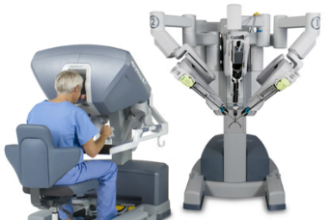 Disruptive Innovation and Disruptive Competition are popular concepts that companies in all industries dream about for developing and launching “killer” innovations. Consultants everywhere advise organizations on the secret or miraculous ways to come up with amazing market-upsetting products and services.
Disruptive Innovation and Disruptive Competition are popular concepts that companies in all industries dream about for developing and launching “killer” innovations. Consultants everywhere advise organizations on the secret or miraculous ways to come up with amazing market-upsetting products and services.
 Disruptive Innovation and Disruptive Competition are popular concepts that companies in all industries dream about for developing and launching “killer” innovations. Consultants everywhere advise organizations on the secret or miraculous ways to come up with amazing market-upsetting products and services.
Disruptive Innovation and Disruptive Competition are popular concepts that companies in all industries dream about for developing and launching “killer” innovations. Consultants everywhere advise organizations on the secret or miraculous ways to come up with amazing market-upsetting products and services.
Yes, there are many things companies can do to facilitate disruptive discovery, design, development and marketing of new products and services; however, not much is said about market readiness as a success factor for these disruptions. Market readiness does not usually come in the form of a nicely defined need or gap, nor is it discovered or verified by rounds and rounds of ‘customer insights’ hunting expeditions.
Instead, one of the most powerful factors that make disruption possible is extreme dissatisfaction with existing products and services. Sometimes this dissatisfaction is well known and talked about (think cable companies), other times it is kind of known but generally accepted as the norm (think medical practices and hospitals), yet other times it is unknown altogether (think mobile phones before Apple’s iPhone).
Before discussing healthcare and why it is ripe and ready for big business-model changes, let’s look at the case of Tesla Motors. Here we have a brand new car company that developed a fabulous all-electric vehicle that gets rave reviews. This, in itself, has been an amazing innovation. But one of their more interesting and valuable moves has been the way they choose to sell their cars. Tesla moved away completely from the traditional car-dealer network — huge car lots flying the biggest flags you’ve ever seen, with hundreds of cars ready to be negotiated for in a very painful process, and a service department eager to perform all kinds of services from changing oil to fixing any of a thousand moving parts.
Tesla developed a technologically-advanced car with relatively few moving parts — no oil changes required for example — with the ability to get software updates over the air. These are not mere updates to the GPS maps database; these are updates to the actual software that runs many of the car’s performance and safety systems. More so, Tesla is selling the cars themselves, not from big lots with huge and costly inventory, but from “Apple-like” galleries in malls where you can talk to concierges, and fully configure and order your custom-made car online there or in the comfort of your home. You don’t bother negotiating price or secret dealer incentives – there are none to be had. You don’t deal with complicated financing and trade-in schemes. Their stated mission is to change the way people think about cars – and they are doing this indeed.
Not surprisingly, Tesla is facing great opposition in some states from the traditional (some say antiquated) car dealer networks who, rightly so, feel their business model under threat. (For more, see http://www.wired.com/business/2014/03/car-dealers-fear-teslas-plan-end-oil-changes-forever/)
So what does this have to do with healthcare? In fact, more than you would expect. There are many parallels between the existing business models in the automotive industry (and other industries: Uber and limo service; Netflix and video rentals; Amazon and retail stores; Apple and mobile phones; etc.) and in healthcare; these are parallels in the things that not only attract disruptive innovations, but also ensure they get a quick uptake and rapid success.
Here are 7 sure ways to attract disruptive competition in healthcare, just like they have attracted it in other industries:
1. Act in arrogant ways
Medicine is an arrogant field: Knowledge is highly concentrated. Information is sequestered. Communications between doctor and patient have been poor; and communications among doctors have been limited. Patient empowerment has been slow to catch on.
2. Provide poor service
Although getting better in many practices and institutions, it is still mired in long wait times, overworked staff, rushed visits, inconsistent care, spotty information-sharing, and more.
3. Have prices that are shrouded in mystery and are far from transparent
If there is one industry with more obscure and obfuscated pricing structures than car dealers, it is healthcare. No one really knows how much things really costs and how much one is paying for anything. Lack of pricing transparency is rampant.
4. Make it difficult to get service and answers
Try to get access to your charts and lab results. Try to have a question answered by your doctor over the phone or email. Try to have a clear and helpful conversation with your insurer.
5. Pretend you have all the answers
A lot of what is done in healthcare – and paid for – is simply wasteful, not-effective, and sometimes even dangerous. There are many unknowns that are proclaimed to be facts.
6. Offer limited, take it or leave it, choices
In healthcare, we are often highly restricted as to whom we can see, when, how often, under what circumstances; and what very narrow range of services, products and options we can get.
7. Protect your old business models for the wrong reasons
Protect old business ways. Defend remuneration models that reward volume rather than quality. Be reluctant to change and adapt to advanced information technologies.
These 7 ways make it very attractive to introduce change and innovation. Such a high level of disorder and dissatisfaction is a catalyst and an attractant for change. The barriers are still many, but they are coming down and when they do, watch out for old business models!

_4.jpg)






